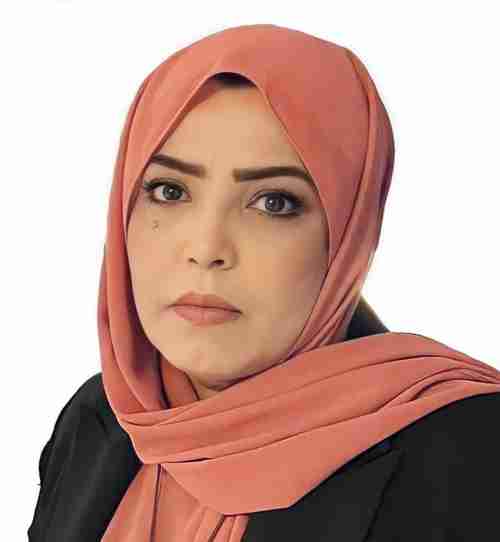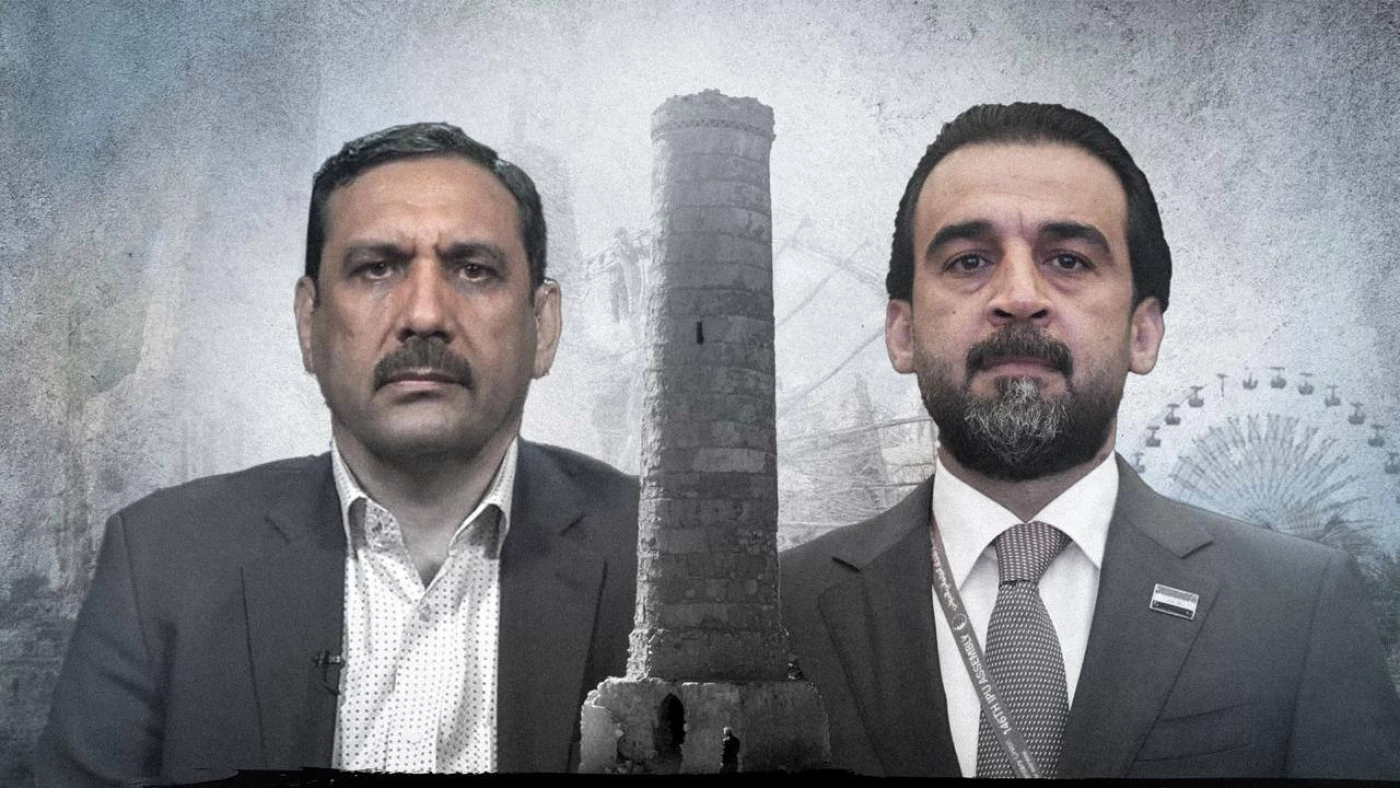On May 18, chaos and fist fighting inside the parliament caused Salem al-Issawi, the candidate of the Sovereignty and Azem Iraqi Sunni parliamentary blocs, the speaker position as he was very close to the position obtaining 158 votes in the first round of voting, 21 votes for his closest competitor, Mahmoud al-Mashhadani, the candidate of Taqadum, the biggest Sunni parliamentary bloc-led by Mohammed al-Halbousi, the former speaker.
However, the great chaos created by Halbousi’s MPs inside the session at that time to obstruct the second round of voting may have kept Issawi away from the position of Speaker until the end of the current parliamentary term.
The position of Speaker has been vacant since November, after the dismissal of Halbousi on charges of forgery.
Since then, the vacant job has been whetting the appetite of Sunni parliamentary blocs, so they have been investing their relationships with Shiite and Kurdish forces, their influence, their money, and their regional and international relations, to make their endeavor a success.
The election of Halbousi’s replacement could have proceeded smoothly, if Halbousi’s opponents had understood that the rules of the political game in the Iraqi political scene had changed since Halbousi was dismissed and that new players and new rules of engagement had been put in place.
Iraqi politicians said that the crisis of choosing the speaker looks, on the surface an intra-Sunni rivalry, given that the position is the share of the Sunni parliamentary blocs, but in reality, it is an intra-Shiite crisis related to the rivalry between the Shiite political forces over the forefront of the Shiite political scene.
"The conflict over the position of Speaker appears to be an intra-Sunni conflict, but in reality it is an intra-Shiite conflict at its core," Haider al-Mulla, one of Azem’s leaders, told The New Region.
“The Shiite forces fear that a strong Sunni figure will assume the presidency of the parliament,” he said. “Their fear is that this figure will unite with Sudani (the prime minister) to form a strong electoral alliance that threatens to sweep them away.”
“This idea sounded the alarm for them, so they sought to bring Issawi, down,” he added.
Halbousi's veto and a Shiite condition
Anbar, the vast desert region in western Iraq, is Halbousi’s hometown and stronghold. It is the catalyst that brought him onto the Iraqi political scene as the leader of the largest parliamentary bloc for two terms.
In the 2021-Parliamentary election, Halbousi’s coalition won 11 out of 15 seats in Anbar alone and nine out of 15 seats in the 2023- provincial councils elections, leaving just seven seats for his rivals combined.
Halbousi has had a firm grip on Anbar’s political scene and local government since 2014. Allowing any Sunni politician from Anbar to succeed Halbousi as speaker, whether he is an opponent or an ally, would risk Halbousi losing his largest repository of electoral votes.
However, Issawi is one of Halbousi’s fellow citizens and has almost the same background as him.
Issawi started as a small contractor in Anbar in the 1990s, then became the owner of a contracting company after 2003, elected to the Anbar Provincial Council in 2010, then to the Parliament in 2014, where he was re-elected for three consecutive terms.
Ironically, the political alliance that had previously nominated Halbousi as its candidate for the speaker position was the same one that is now nominating Issawi as a successor to Halbousi.
"The selection of Issawi was not random or coincidental. The (Sunni) leaders who nominated him are fully aware of the need for a candidate who is a match for Halbousi in Anbar," a Sunni leader close to Khanjar, Halbousi’s most prominent opponent, told The New Region.
“All the (Sunni) leaders know that Halbousi’s greatest strength is his control over Anbar. It is time to strip him of this power,” he added. “Issawi’s nomination is calculated and planned to undermine Halbousi’s influence there and regain control of the province.”
Based on the political norms adopted by the Iraqi political forces since 2005, Halbousi, as the leader of the largest Sunni parliamentary bloc, has the right to veto any candidate for any sovereign position.
Halbousi used this right to block Issawi’s way to the chair of the speaker, Shiite and Sunni politicians told The New Region.
Halbousi's allies and opponents say that he will not oppose any candidate to assume the position, provided that he is not one of his Anbari citizens.
“There is no real enmity between Halbousi and Issawi. Issawi’s only problem (from Halbousi’s point of view) is that he comes from Anbar,” a prominent Sunni politician told the New Region.
“Halbousi cannot allow a politician from Anbar to succeed him, even if this means keeping the position in the hands of the Shiite forces until the end of the parliamentary term.
“Emerging a new Sunni leader in Anbar means that he (Halbousi) will lose his popular base there and threaten his political future,” the Sunni politician said.
Confluence of interests
Although the Shiite forces have continued to declare that they are not concerned with the conflict taking place in the Sunni political scene, which looks to revolve on the position of Speaker of Parliament, the announced and unannounced alignments between the Shiite and Sunni forces suggests something else.
The alignment of Qais Khazali, the leader of Asaib Ahl al-Haq, one of the most powerful Iranian backed armed Shiite factions, and one of the poles of the ruling Coordination Framework, the largest Shiite political alliance, with Halbousi, and the alignment of Mohammed Shia al-Sudani, the Iraqi Prime Minister, with Issawi, reveals the essence and extent of the conflict between the Shiite political forces this time.
Khazali, who aspires to dominate the Shiite political scene and is the key sponsor of Sudani’s government, believes that Sudani has begun to “expand and widen the circle of his influence and allies away from him”, which makes it likely that he will turn against him before the next parliamentary elections scheduled for October 2025, Shiite leaders close to the two men told The New Region.
However, Sudani, who has presented himself to Iraqis throughout the past period as a man of services and who has been involved in creating and reviving hundreds of strategic infrastructure projects in Baghdad and the central and southern provinces, appointing hundreds of thousands of unemployed people, and increasing the number of those covered by the social welfare network, is feverishly seeking to secure his second term as prime minister.
He is relentlessly seeking to form an electoral list called “Reconstruction” that includes several ministers, dozens of MPs, at least three governors, senior officials, businessmen and heads of tribes in Sunni and Shiite areas, three of the leaders-contacted by Sudani to join his list, told The New Region.
Faleh al-Fayyadh, head of the Popular Mobilization Authority, Ahmed al-Asadi, Minister of Labor and Social Affairs, Asaad al-Eidani, Governor of Basra, Mohammed al-Mayahhi, Governor of Wasit, and Nassif al-Khattabi, Governor of Karbala are among the Shiite figures to whom Sudani offered to join his electoral project.
Issawi, Khanjar, Samarrai, and Abbasi are among the Sunni leaders with whom Sudani concluded preliminary understandings to form future political alliances before or after the parliamentary elections.
Sudani's moves, which were most evident during the session to elect Issawi and were manifested through text messages sent to the MPs he allured, urging them to vote in favor of Issawi, angered his Shiite allies, especially Khazali and Nouri al-Maliki, leader of the State of Law Coalition and one of the leaders of the Coordination Framework, "so they decided to curb him," Shiite leaders told The New Region.
“Sudani is seeking to secure a second term by merging the Sunni and Shiite arenas. He is trying to present himself as a new, strong Shiite leader who is acceptable by the Sunnis, the Kurds, and the international community,” a potential Sudani ally told The New Region.
“This effort is starting to irritate Shiite leaders who don’t want him to grow and expand to the point where he can turn against them,” he said. “They haven’t actually turned against him yet, but they have reached out to a number of leaders, officials, and governors and warned them against allying with Sudani.”
"Thwarting Sudani's efforts to support Issawi was aimed more at curbing Sudani than at supporting Halbousi,” he added.



 Facebook
Facebook
 LinkedIn
LinkedIn
 Telegram
Telegram
 X
X


